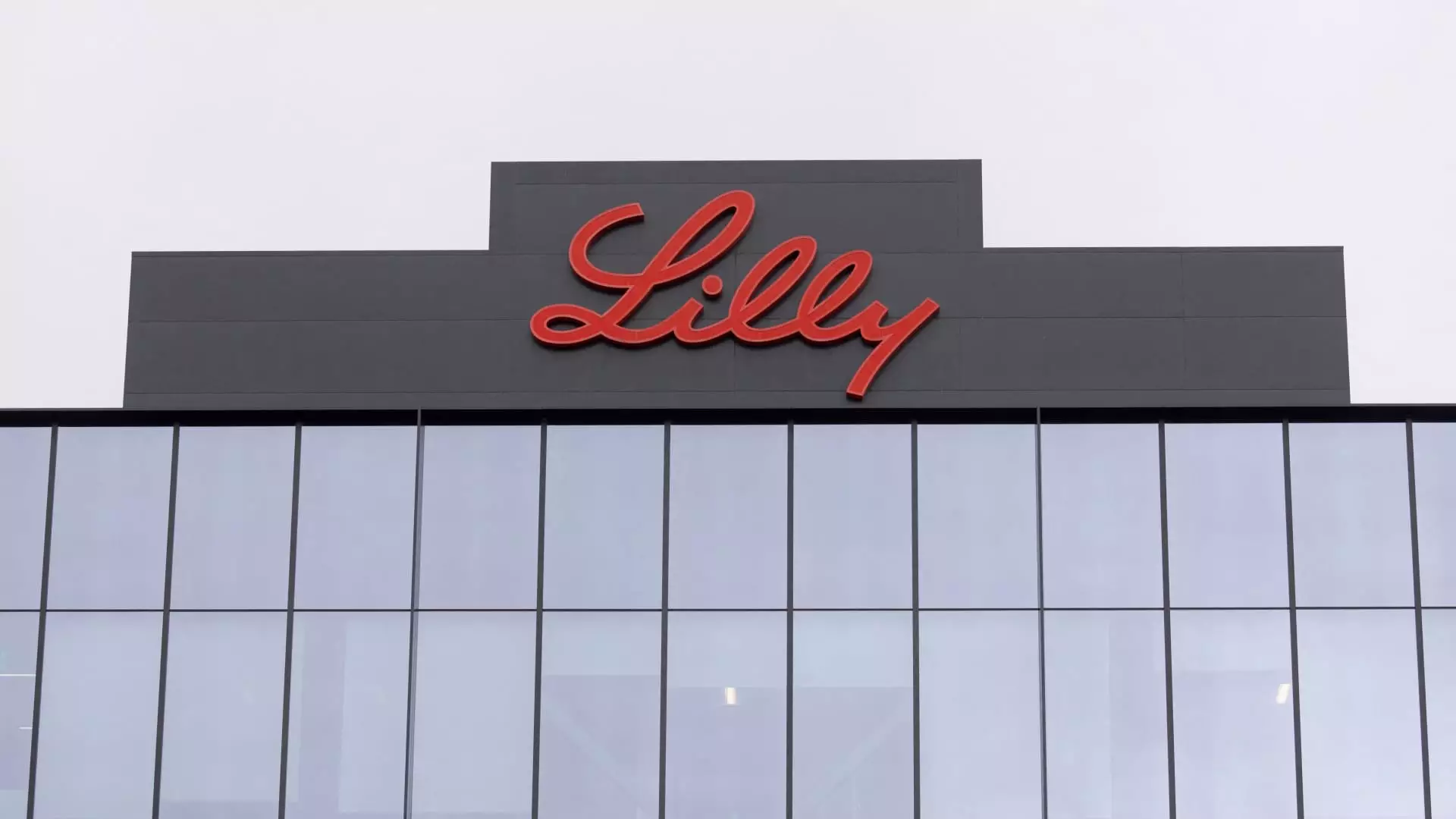In the ever-evolving landscape of financial markets, stock price movements can create ripples of influence across various sectors. This article delves into noteworthy developments from midday trading, focusing on both declines and surges that have marked major companies.
Eli Lilly, a prominent player in the pharmaceutical sector, has encountered a significant downturn in its stock. The company’s share price plummeted over 7% after it announced revisions to its revenue projections. Initially forecasting a healthy revenue of between $45.4 billion and $46 billion for 2024, Eli Lilly has now scaled back its expectations to approximately $45 billion. The disappointment stems from lower-than-expected demand for its weight loss and diabetes medications, raising concerns about the sustainability of its growth trajectory. Investors are now left speculating on the long-term viability of these products in a competitive marketplace.
Similarly, Boeing has also seen its shares slip by more than 2%, primarily due to disappointing airplane delivery figures. The aerospace giant reported a substantial drop in deliveries for the year 2024, with numbers coming in about a third lower than the previous year, totaling just over 348 units. This stark contrast places Boeing at a disadvantage compared to its chief rival, Airbus, which boasted 766 deliveries last year. These statistics highlight ongoing challenges within Boeing’s operational efficiency and production capability, leading investors to question the company’s future performance against industry expectations.
In a contrasting scenario, Applied Digital has emerged as a point of interest in midday trading, securing a remarkable gain of over 6%. The surge stems from Macquarie’s commitment to invest as much as $5 billion into Applied Digital’s artificial intelligence data centers. This agreement, which includes a 15% stake in the company’s high-performance computing (HPC) segment, reflects growing confidence in the AI sector’s potential. With technology continuing to reshape industries, investors seem optimistic about Applied Digital’s prospects, particularly as demand for advanced computing solutions escalates.
Another notable mover in the stock market is Hesai, a supplier within the automotive sector. The company’s shares experienced a notable increase of 8% following an upgrade to a ‘buy’ rating from Goldman Sachs. Analyst Tina Hou emphasized that the current valuation reflects an opportunity for upside given the anticipated benefits from a new product cycle. As electric and autonomous vehicles gain traction, Hesai may benefit from the heightened demand for innovative automotive technologies, eliciting optimism from investors who appear to have underestimated the company’s potential.
On the opposite end of the spectrum, Signet Jewelers faced a staggering 26% decline in stock value after the company lowered its guidance for the fourth quarter. The parent company of Kay Jewelers and Zales pointed to weak holiday sales as consumers shifted toward lower-price point items. This trend underlines the pressures faced by luxury retailers in a shifting economic environment where consumers are increasingly budget-conscious, casting doubts on the viability of high-end retail performance in the prevailing market conditions.
In a more optimistic narrative, KB Home shares rose by 3%, buoyed by a strong earnings report for the fourth quarter. The homebuilder’s per-share earnings of $2.52 exceeded expectations, along with revenue that topped forecasts at $2 billion against predictions of $1.99 billion. This robust performance suggests a resilient demand in the housing sector, which has remained somewhat buoyant despite broader economic concerns.
The acquisition of H & E Equipment Services by United Rentals has sent shockwaves throughout the markets, leading to an astonishing surge of over 105% in H & E’s stock. United Rentals announced a $92-per-share cash valuation for H & E, translating to a total acquisition cost of about $4.8 billion. This strategic move highlights the ongoing consolidation within the equipment rental industry, with United Rentals also experiencing a 3% rise in its stock value.
Midday trading has presented a mixed bag of fortunes for various companies, highlighting the dynamic nature of stock performance influenced by both internal decisions and external market forces. Keeping a pulse on these developments is critical for investors seeking to navigate the complexities of the financial landscape.

